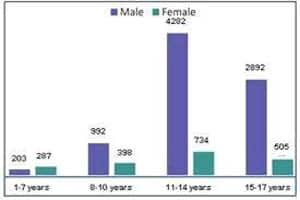Pine needles are dropping off trees, bags of used wrapping paper are collecting in various corners of various living rooms, television stations are airing their countdown Jamborees, yes, it can only mean one thing.
Kwanzaa is here. I can't tell you how much joy I get from exchanging the traditional Kwanzaa greeting:
"Happy Kwanzaa!"
"Wait, today is Kwanzaa?"
Ah yes, nothing compares to the warm fuzzies I get when explaining to somebody that not only is it Kwanzaa now, that it happens the day after Christmas every year and is thus not particularly hard to remember. That's because Kwanzaa is about more than consumerism, or presents, or tinsel and bows. It's about something meaningful:
Making white people feel guilty.
Oh, sure, white guilt purists will tell you that Kwanzaa is minor league, a mere prelude to more well-known guilt fests like Black History month (did you know that a black man invented peanut toffee?) and that day in March when you realize that not only have you made no progress on your New Year's resolution, you've forgotten entirely what it was. But I've always had a soft spot for Kwanzaa, that little Holiday that Couldn't. Sure, it could have sold out. It could have been a vaguely ethnic entry point for white folks into a culture they would eventually feel comfortable consuming without the least bit of context, but it refused to do that.
Kwanzaa is not Drake.
Kwanzaa could have tried to make itself marketable. It could have put forth a cohesive message, or added reasonable traditions, or compelling elements. But it avoided the temptation. It looked itself long and hard in the mirror and decided, "I am ok with being a confusing hodgepodge of faux Pan-africanism and more popular holidays. More candles! More typo-ridden books and poorly made wooden toys! I have the length of Hannukah and the relevance of Arbor day; I am Kwanzaa, hear me roar!"
And I applaud it for that. You might wonder why a holiday started in the United States in 1966 felt the need to use Swahili for everything. Wouldn't the phrase, "Self-determination" be easier to pronounce for its adherents than "Kujichagulia?" Isn't it at least somewhat confusing for non-native speakers to remember the difference between "Umoja", "Ujima", and "Ujamaa"?
Of course it is. And that's the beauty of it.
Every Official Black Friend/White Guilt Afficianado remembers their first time. Leaning back onto the couch in somebody's appartment while their parents are at their country house, sipping half-ironically on a 40-ounce beer and watching their white friends attempt to mimic the cadence of a rap beat. They're getting the lyrics all mixed up but hitting the chorus with the kind of enthusiasm you can only muster when you've never actually been in the projects. When it comes to you: that Project Pat is going to say "nigga" soon. What will your friends do? They've been been eyeing you cautiously for the last 12 bars, trying to figure out whether it's more awkward NOT to say it. That line is the exact moment, of course, that 95% of those "rapping" decide that they could go for another tortilla chip (coincidence, to be sure) and the rest develop a sudden and medically unexplained case of the Mumbles. You sit back and drink in the awkward racial tension.
Now imagine if there were SEVEN words like that. Swahili is the perfect language for a white guilt holiday; there are only about 7 million native speakers, and it's almost never taught at the high school OR university level in the United States. This ensures that white people can't even discuss the holiday without feeling some confusion, awkwardness and the attendant guilt.
Furthermore, besides the kinara (I'll add this parentheses to give you time to google kinara and wonder to yourself why they couldn't just call it a candle-thingy), nobody is actually sure how to celebrate the holiday. A pie-eyed idealist might think that such flexibility allows you to celebrate in whatever manner you and those close to you find most meaningful, but I know better. It's so you can import any sort of tradition you want and not be challenged.
"Hey boss, I'm going to need to take a three hour lunch today."
"Absolutely not, we're behind enough as it is.""It's part of a traditional Kwanzaa feast."
"Oooh, bring me back one of those little hats!"
It's like the gift that keeps on giving. Like knitting, sign language, and making your own hummus, white folks are always just a little to busy to learn anything about celebrating Kwanzaa. Which means that you can just keep on making stuff up until you get challenged. Then, all you have to do is drop in the phrase matunda ya kwanza, and watch them try to figure out if that means anything.
Thank you, and harambe!


